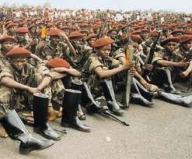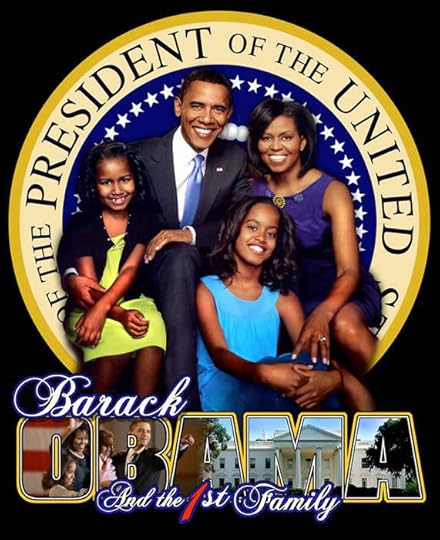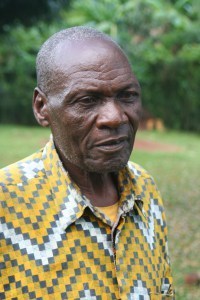David Hartness's Blog, page 2
November 29, 2014
The Dangerous Culture of Child Soldiers
Child soldiering is a global issue, but rarely receives the same level of media attention as riots in the streets of Ferguson, or the the Iraq war. Over 250,000 children are currently serving in rebel armies around the world. These children are recruited by adults, and some are kidnapped and forced into the war that they barely understand.
Almost every war, past or present that involves third world countries, uses these children as weapons. So what is their duty:
1. Cooking
2. Wearing suicide bomb vests
3. Fighting in the war
4. Sexual objects (as disgusting as this may be, adults take advantage of these children. This has been predominately a female role, but recently there have been reports that males are also being raped and used for sexual pleasure.
Why would armies use these children in such ways? At the heart of this issue, is the fact that children are susceptible to such brainwashing do to their willingness to follow or obey adults. However, the reason why adults want them, is because they eat less, and are cheaper to employ. Adults cost more money, and in the rebel movements, they are strapped for cash, therefore, this is an alternative way of supplying there army.
Hard Facts to Help you Make a Difference
1.5 billion children live in countries affected by high violence (these children are more likely to be recruited or forced into the barbaric practice)
40 million children are out of school in countries affected by war.
2.7 million children died as a result of the war in the Democratic Republic of Congo.
There are 250,000 children who are currently serving as child soldiers and 40% of them are females.
The global issue is not new, in fact it his has been around for decades, but it still continues to this day, because not enough is being done to support the cause and eradicate the issue. I wrote the book Amani’s River, in hopes that this would shed light on the issue and force social change.
Please, share, like and re-tweet this post, so that we can force the hands of congress and pass substantial measures to ensure that US dollars are not being used to help countries who allow this practice to continue.

November 22, 2014
Why I Wrote My Book, Amani’s River
 The concept of Amani’s River started when I was stationed in Mozambique as a Peace Corps volunteer. While serving the community of Namaacha, a border town to Swaziland, it was impossible not to hear the locals speak of the civil war, and the pride they felt to be free, democratic and remembering the fallen heroes that fought for this right. Although Mozambique has not seen the likes of violence in over 20 years, the remnants of the 16 year civil war is clearly evident throughout the small country. While serving, I befriended people with cut off limbs, scars on their faces and aches in their body, directly related to the brutal war that tore families apart, and left a country to rebuild.
The concept of Amani’s River started when I was stationed in Mozambique as a Peace Corps volunteer. While serving the community of Namaacha, a border town to Swaziland, it was impossible not to hear the locals speak of the civil war, and the pride they felt to be free, democratic and remembering the fallen heroes that fought for this right. Although Mozambique has not seen the likes of violence in over 20 years, the remnants of the 16 year civil war is clearly evident throughout the small country. While serving, I befriended people with cut off limbs, scars on their faces and aches in their body, directly related to the brutal war that tore families apart, and left a country to rebuild.
I have lived in Africa for 7 years and have traveled back to the states multiple times. I have seen a shift in the mindsets of people, and to a certain extent I have seen the glorification of war. Before I continue, I want to make it clear that I support our troops, and I support the fight to preserve our military,but I also want people to stop this glorification of violence.
I was at a conference in Paris, held by an American University. At the start of this conference, they asked all the military (current and past) to stand and receive an applause for their services. At the time, I thought this was nice. While in the states, I was asked by multiple organizations if I served in the military, so that I can receive discounts (Of which I was not entitled to, due to the fact I never served). On my way to New Orleans, they asked all active military to step forward and receive priority boarding ahead of the elderly and children needing assistance. Several military members stepped forward, received an applause from a few, and took priority seating. In many regards, I thought this was nice, way to support our troops, way to be patriotic. Here is the problem, what about the Peace Corps!
If someone asked me to stand to receive an applause because of my service, I probably wouldn’t stand, because that’s not in my personality. I didn’t serve the Peace Corps to get a discount on movie tickets or priority boarding, I served to promote peace. However, it would be nice to have the offer, so I could make the decision to reject or accept the praise.
Living overseas, it was clear that most citizens loved the US and their power, but detested the military presence. However, my argument was that it was needed to help promote democracy, and I still believe this. Although, my views are conflicted, I want Americans to start promoting the initiatives such as Peace Corps or AmeriCorps as much as we fund and promote the military. American policy needs to change, if we are to continue being the leader of the free world. We promote one thing, but often do the opposite to protect our interests. We destroy countries and community to preserve a belief of the American people.
In 2014 the US government is set to spend over 700 billion dollars on defense, while the federal government spends 101 billion on educational expenses. Since the Iraq war, we have seen these numbers go through the roof, only to fail on multiple accounts. Furthermore, the US government spends around 24 billion dollars per year on poverty reduction and just 374.5 million dollars for the US Peace Corps in the fiscal year of 2013. I think it is safe to say that we are sending a message to the rest of the world that our priorities lie within the military, and not in the education, peace, and poverty reduction. I am in support of a strong military, but not a military that feels they need to be 700 billion strong.
Going back to t he novel that was written, because this all links to the inspiration behind this piece of work. I set out to depict the brutalities of war, because I wanted people to understand that behind every hero, there are countless victims of war that were in the wrong place at the wrong time. These people’s family, now destroyed, spend years suffering, mourning, and wondering if their freedoms were worth the life of their husband, wife, or child. There is a reason why Samora Machel was not mentioned in the book. I didn’t want to depict an ending where a hero swept in with their forces, played to music, displaying bravery while fighting, and leading their country to the greatest battle ever.
he novel that was written, because this all links to the inspiration behind this piece of work. I set out to depict the brutalities of war, because I wanted people to understand that behind every hero, there are countless victims of war that were in the wrong place at the wrong time. These people’s family, now destroyed, spend years suffering, mourning, and wondering if their freedoms were worth the life of their husband, wife, or child. There is a reason why Samora Machel was not mentioned in the book. I didn’t want to depict an ending where a hero swept in with their forces, played to music, displaying bravery while fighting, and leading their country to the greatest battle ever.
Roll end credits!
I wanted to depict the raw emotions, pain and brutal realities of many lives currently affected by war. I set out to tell a story in the eyes of a child soldier. A soldier that did not ask for the war, nor do they understand the political reasons for the fight. I hoped that this would make us understand the decisions we make and hopefully allow readers to gain a unique insight into these emotions.
Understand, that sometimes war is needed, for various political and ethical reasons. But war is never to be glorified. Please go ahead and honor our troops, I certainly do, but please start recognizing the many peaceful initiatives that we take part in. Honor the men and women that represent the USA by promoting health and sustainable initiatives to improve the livelihood of multiple communities.
war is never to be glorified. Please go ahead and honor our troops, I certainly do, but please start recognizing the many peaceful initiatives that we take part in. Honor the men and women that represent the USA by promoting health and sustainable initiatives to improve the livelihood of multiple communities.
Amani’s River was written to give a give a voice to the current 250,000 child soldiers, and the 5,000,000 lives effected by the war. It was an account meant to educate and make people think about the values of our beliefs, and perhaps think twice before we justify the killing of innocent lives.
Amani’s River is due out in 2015. Please follow my blog for updates.

November 5, 2014
A Canadian’s View On Our Disrespect Of President Obama’s Presidency
Well said from a Canadian. As an American, I have been noticing this from the day he was elected and it sickens me. I wish Americans thought this way, so we can make positive social change.
 Originally posted on The Fifth Column:
Originally posted on The Fifth Column:

EgbertoWillies.com
America – He’s Your President for Goodness Sake!
By William Thomas
There was a time not so long ago when Americans, regardless of their political stripes, rallied round their president. Once elected, the man who won the White House was no longer viewed as a republican or democrat, but the President of the United States. The oath of office was taken, the wagons were circled around the country’s borders and it was America versus the rest of the world with the president of all the people at the helm.
Suddenly President Barack Obama, with the potential to become an exceptional president has become the glaring exception to that unwritten, patriotic rule.
Four days before President Obama’s inauguration, before he officially took charge of the American government, Rush Limbaugh boasted publicly that he hoped the president would fail. Of course, when the president fails the country flounders. Wishing harm upon…
View original 909 more words

November 1, 2014
Modern Day Slaves to Our Societies Development
I was driving down Linda Road in Lusaka, Zambia when I noticed about thirty shirtless men digging a trench to lay some wires or pipe. They each held their digging tools firmly over their head and in unison swung to the dirt. They continued this motion over and over, each time forming more sweat.
Standing on the outside of the trench, with his hands folded, wearing a wide sun brimmed hat, staring at the men work, was the middle aged supervisor. He was of Asian descent, and did not appear eager to help, but quick to jump in and yell when things weren’t going right.
The image stuck w ith me for several weeks after I noticed the scene. I spent many hours thinking about it, analyzing every moment, trying to contemplate the workers and how little they made, and the supervisor and how much he made.
ith me for several weeks after I noticed the scene. I spent many hours thinking about it, analyzing every moment, trying to contemplate the workers and how little they made, and the supervisor and how much he made.
I did some research on the effects of poverty and even how this impacts the society’s development. What I found was shocking. The average person living in poverty makes $1.25 per day, or $37.50 per month and a meager $450 per year. Most of our phones cost more than that, which we can get in and out of the store in under 30 minutes. Thirty minutes, and we can spend more money than someone digging ditches for an entire year makes.
In 2005 5.15 billion people lived below the poverty line, making roughly $10 per day. Just 1.31 billion found the good fortune of making enough money to stay above this poverty line. This number has fluctuated slightly over the years, but not enough to make profound impacts on society.
22,000 children die each day due to poverty. These children are the voiceless few that are never heard from. They die in small villages, far removed from the hustle and bustle of the modern day society that their parents helped build, but never experience. These children are the same that have no access to clean water, proper food preparation and refrigeration. These children are the faces of the issues, but are never seen.
 How does this all relate to slaves? Slavery is a term that is associated with beatings, treated people less than human, and white supremacy. The black men that dug the ditches, were not beaten, and had no visible scars, but they were slaves to our development.
How does this all relate to slaves? Slavery is a term that is associated with beatings, treated people less than human, and white supremacy. The black men that dug the ditches, were not beaten, and had no visible scars, but they were slaves to our development.
They dug the ditches to the middle and upper-class homes, which they would never see the fruits of their labor. They made just enough money to have beans and rice every day, but rarely enough to have meat. They made no money to give their children a good education, and break the bleak cycle of depression. They broke their backs, digging a ditch to develop the country, while a foreigner stood watch to ensure that the job was complete. The Asian man did nothing, yet took the credit and the money.
There is another side to slavery that is often forgotten. The white owners and managers of the plantation riding around on their horses, supervising the laborious task of picking cotton. The slaves going home with nothing, just enough food to keep them going. Usually only having one meal a day. White owners taking everything, giving nothing back and nothing to sustain society’s growth.
I am not saying that the workforce in Africa and other developing countries is as bad as slavery, far from it, we have come a long way from those dark days. However, I am drawing the comparison, to shock the reader. Even though we pay the workforce, we only pay them enough to sustain life with a meager meal. How is this different than the plantation owner giving no money, but enough food to sustain life? The modern day workforce in developing countries live in small shacks, while the supervisors live in gated communities far from the people. How is this different than a slave living in a small home on the outskirts of the property, while they see in the distance the large white home?
 The modern day workforce does have the right to education, which slaves did not, and they have the right to quit and find other employment. They also have the right to lawyer and the right to medical treatment. However, their inalienable right to these justices are cut at the knees due to their financial inability to pay for these luxuries. How can their children get a decent education with a classroom full of 50 pupils?
The modern day workforce does have the right to education, which slaves did not, and they have the right to quit and find other employment. They also have the right to lawyer and the right to medical treatment. However, their inalienable right to these justices are cut at the knees due to their financial inability to pay for these luxuries. How can their children get a decent education with a classroom full of 50 pupils?
More is needed to distribute wealth amongst the citizens. More is needed to ensure a high quality education. More is needed to help contribute to economic growth. The answers may not be found in this article, because the solution is far reaching and will take many more years. But I implore people to stop and think about how we spend our money. As a society, we cannot sustain social growth as consumers. We can only make social change by enacting principals in our life, to help solve the problem.
You may not agree with this, but I think we can find a common ground and agree that everyone, in every country, in every corner of the world, has the right to an education and a decent salary.





